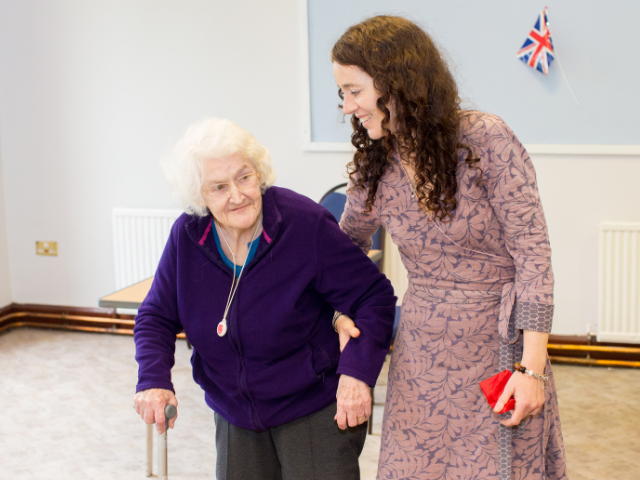
Four ways dementia research in Wales is improving lives
It’s world Alzheimer’s day (21 September) a global opportunity to raise awareness around, educate, encourage support of and demystify dementia.
The Health and Care Research Wales research community are working hard to improve the lives of people living with dementia, their families and their carers. There is a wealth of incredible research into dementia, including Alzheimer’s disease, happening right across Wales.
Dementia is a general term for loss of memory and other mental abilities severe enough to interfere with daily life. Alzheimer’s disease is the most common form of this condition. Here are just four examples of the many ways research in Wales is making a difference to those affected:
- Support with feelings of grief and loss
After diagnosis, people living with dementia and their families may deal with feelings of loss and grief. But these feelings can often be overlooked because the person is still present.
Researchers at the School of Health Sciences in Bangor University, alongside researchers from the Centre for Ageing and Dementia Research, are evaluating a new service from Cruse Bereavement Cymru, which gives volunteers an insight into what it’s like to care for someone with dementia and shows them how to provide support.
Cruse have already supported 120 people affected by dementia through this service, and their support has been described as “immeasurable, at a time of great darkness.”
Read more about this research.
- Improving mental health and preventing loneliness
Loneliness and mental health problems are more common in older people who live with dementia.
Researchers at the Centre for Ageing and Dementia Research took part in an international study looking at the development of mental resilience. They found those who had higher mental resilience had:
- Higher self-esteem
- Greater social connections
- Support from friends and family
- Didn’t report and memory problems
This is an important first step in gaining new knowledge about older people and mental resilience.
Read more about this research.
- Supporting carers to take breaks
Looking after the health and wellbeing of carers is essential to supporting those living with dementia, and can prevent or delay them moving into care homes. However, understanding of what makes a successful short break is limited.
Research from the Centre for Ageing and Dementia Research identified three priorities for future studies into short breaks:
- Understanding what matters for carers when it comes to short break needs
- Capturing the results of short breaks and how they make carers feel
- Making sure carers can take short breaks and changing them based on what matters to them
- Helping family members care for their loved ones
The majority of people living with dementia receive care from family members at home, who often have limited specialist knowledge. This can be very stressful, with many carers experiencing mental and physical illness as a result.
Researchers at the School of Health Sciences, Bangor University are part of an international study assessing the effectiveness of ‘iSupport’, an online tool which is designed to help carers provide good care and look after themselves.